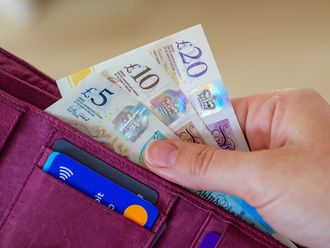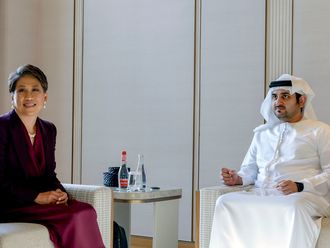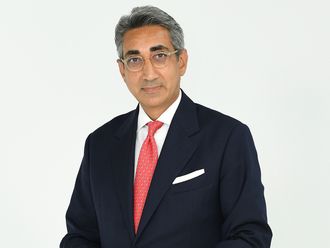Jeddah: Saudi Arabia will keep its currency peg to the US dollar as long as the Opec member's economy is heavily reliant on oil but this may change eventually, its central bank governor said Monday.
The dollar has been sliding this year, touching a three-year low against a basket of currencies last week. Its weakness tends to boost inflation in the world's top oil exporter, where some 70 per cent of imports are priced in dollars.
Asked whether the dollar link to the Saudi riyal is forever, Central Bank Governor Mohammad Al Jasser said: "Nothing is forever in the economy; if the circumstances change, for example if oil becomes 10 or 15 per cent of the economy and we have an agriculture, industry and services-based economy ... then there must be a change in the outlook.
The dollar remains
"But as long as the economy is highly dependent on one product, which is oil ... then the dollar remains," he told a university event.
Oil accounts for around half of the output of the biggest Arab economy. The kingdom, a key US ally, depends on exports of crude, which is priced in dollars, for around 85 per cent of its government revenue.
"It is noteworthy to point out that the decision to peg the exchange rate of the riyal to the dollar is based on pure economic interests," Al Jasser said.
Decrease pressure
He also echoed recent comments by the kingdom's finance minister, saying that the king's orders to increase housing supply will decrease some of the inflationary pressures coming from rents in the future.
Saudi inflation eased to a one-year low of 4.7 per cent in March, although analysts say demand will be boosted by a package of government handouts worth around $130 billion (Dh477 billion) prompted by political turmoil elsewhere in the Arab world.











